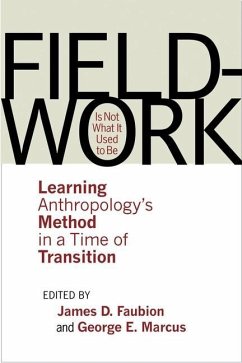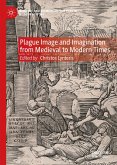Over the past two decades anthropologists have been challenged to rethink the nature of ethnographic research, the meaning of fieldwork, and the role of ethnographers. Ethnographic fieldwork has cultural, social, and political ramifications that have been much discussed and acted upon, but the training of ethnographers still follows a very traditional pattern; this volume engages and takes its point of departure in the experiences of ethnographers-in-the-making that encourage alternative models for professional training in fieldwork and its intellectual contexts.
The work done by contributors to Fieldwork Is Not What It Used to Be articulates, at the strategic point of career-making research, features of this transformation in progress. Setting aside traditional anxieties about ethnographic authority, the authors revisit fieldwork with fresh initiative. In search of better understandings of the contemporary research process itself, they assess the current terms of the engagement of fieldworkers with their subjects, address the constructive, open-ended forms by which the conclusions of fieldwork might take shape, and offer an accurate and useful description of what it means to become-and to be-an anthropologist today.
Contributors: Lisa Breglia, George Mason University; Jae A. Chung, Aalen University; James D. Faubion, Rice University; Michael M. J. Fischer, MIT; Kim Fortun, Rensselaer Polytechnic Institute; Jennifer A. Hamilton, Hampshire College; Christopher M. Kelty, UCLA; George E. Marcus, University of California, Irvine; Nahal Naficy, Rice University; Kristin Peterson, University of California, Irvine; Deepa S. Reddy, University of Houston-Clear Lake
FaubionJames D.:
James Faubion is the Radoslav Tsanoff Chair and Professor of Anthropology at Rice University. He is the author of An Anthropology of Ethics, The Shadows and Lights of Waco: Millennialism Today, and Modern Greek Lessons: A Primer in Historical Constructivism.MarcusGeorge E.:
George E. Marcus is Chancellor's Professor of Anthropology at the University of California, Irvine. He is coauthor of Anthropology as Cultural Critique: An Experimental Moment in the Human Sciences and coeditor of Writing Culture: The Poetics and Politics of Ethnography. He was the founding editor of Cultural Anthropology.
The work done by contributors to Fieldwork Is Not What It Used to Be articulates, at the strategic point of career-making research, features of this transformation in progress. Setting aside traditional anxieties about ethnographic authority, the authors revisit fieldwork with fresh initiative. In search of better understandings of the contemporary research process itself, they assess the current terms of the engagement of fieldworkers with their subjects, address the constructive, open-ended forms by which the conclusions of fieldwork might take shape, and offer an accurate and useful description of what it means to become-and to be-an anthropologist today.
Contributors: Lisa Breglia, George Mason University; Jae A. Chung, Aalen University; James D. Faubion, Rice University; Michael M. J. Fischer, MIT; Kim Fortun, Rensselaer Polytechnic Institute; Jennifer A. Hamilton, Hampshire College; Christopher M. Kelty, UCLA; George E. Marcus, University of California, Irvine; Nahal Naficy, Rice University; Kristin Peterson, University of California, Irvine; Deepa S. Reddy, University of Houston-Clear Lake
FaubionJames D.:
James Faubion is the Radoslav Tsanoff Chair and Professor of Anthropology at Rice University. He is the author of An Anthropology of Ethics, The Shadows and Lights of Waco: Millennialism Today, and Modern Greek Lessons: A Primer in Historical Constructivism.MarcusGeorge E.:
George E. Marcus is Chancellor's Professor of Anthropology at the University of California, Irvine. He is coauthor of Anthropology as Cultural Critique: An Experimental Moment in the Human Sciences and coeditor of Writing Culture: The Poetics and Politics of Ethnography. He was the founding editor of Cultural Anthropology.
Dieser Download kann aus rechtlichen Gründen nur mit Rechnungsadresse in A, B, BG, CY, CZ, D, DK, EW, E, FIN, F, GR, HR, H, IRL, I, LT, L, LR, M, NL, PL, P, R, S, SLO, SK ausgeliefert werden.









